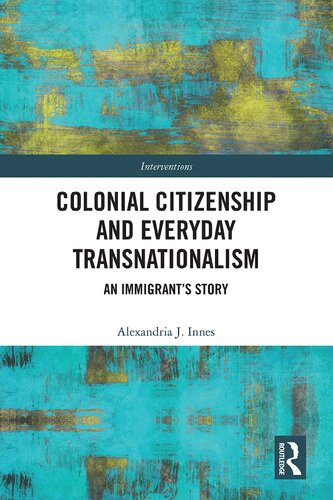

Most ebook files are in PDF format, so you can easily read them using various software such as Foxit Reader or directly on the Google Chrome browser.
Some ebook files are released by publishers in other formats such as .awz, .mobi, .epub, .fb2, etc. You may need to install specific software to read these formats on mobile/PC, such as Calibre.
Please read the tutorial at this link: https://ebookbell.com/faq
We offer FREE conversion to the popular formats you request; however, this may take some time. Therefore, right after payment, please email us, and we will try to provide the service as quickly as possible.
For some exceptional file formats or broken links (if any), please refrain from opening any disputes. Instead, email us first, and we will try to assist within a maximum of 6 hours.
EbookBell Team

4.3
78 reviewsThis book uncovers the contradictions and convergences of racism, decolonisation, migration and living international relations that were shaped by the shift from colonialism to postcolonialism and from nationalism to transnationalism between the 1950s and the present.
It takes up the story of Nicholaos Charalambou Kanaris, a colonial migrant to the UK from Cyprus, as a reflection on how the everyday lives of minor figures offer an unexplored window into international relations. The research uncovers and offers insight into the complexities and messiness of everyday life and of (trans)national identities as they are lived and have been lived at the heart of imperial, colonial and postcolonial systems and processes. The innovative methodological approach adopts memoirs gathered through a series of life-narrative interviews and is guided by theories of minor transnationalism that look to foreground horizontal relations between minor figures. Various themes of international relations are examined through the lens of Nicholaos’ story and his family life, including colonialism, geopolitics, citizenship, security, migration and transnationalism. Examining how these themes play out in everyday life permits his practice and lived experience to theorise the international politics of colonialism, migration and citizenship.
This book argues that Politics and International Relations can benefit from a transnational approach and offers a method of theory-in-practice for exploring the everyday experience of transnationalism, through the methodology of life-narrative and memoir.